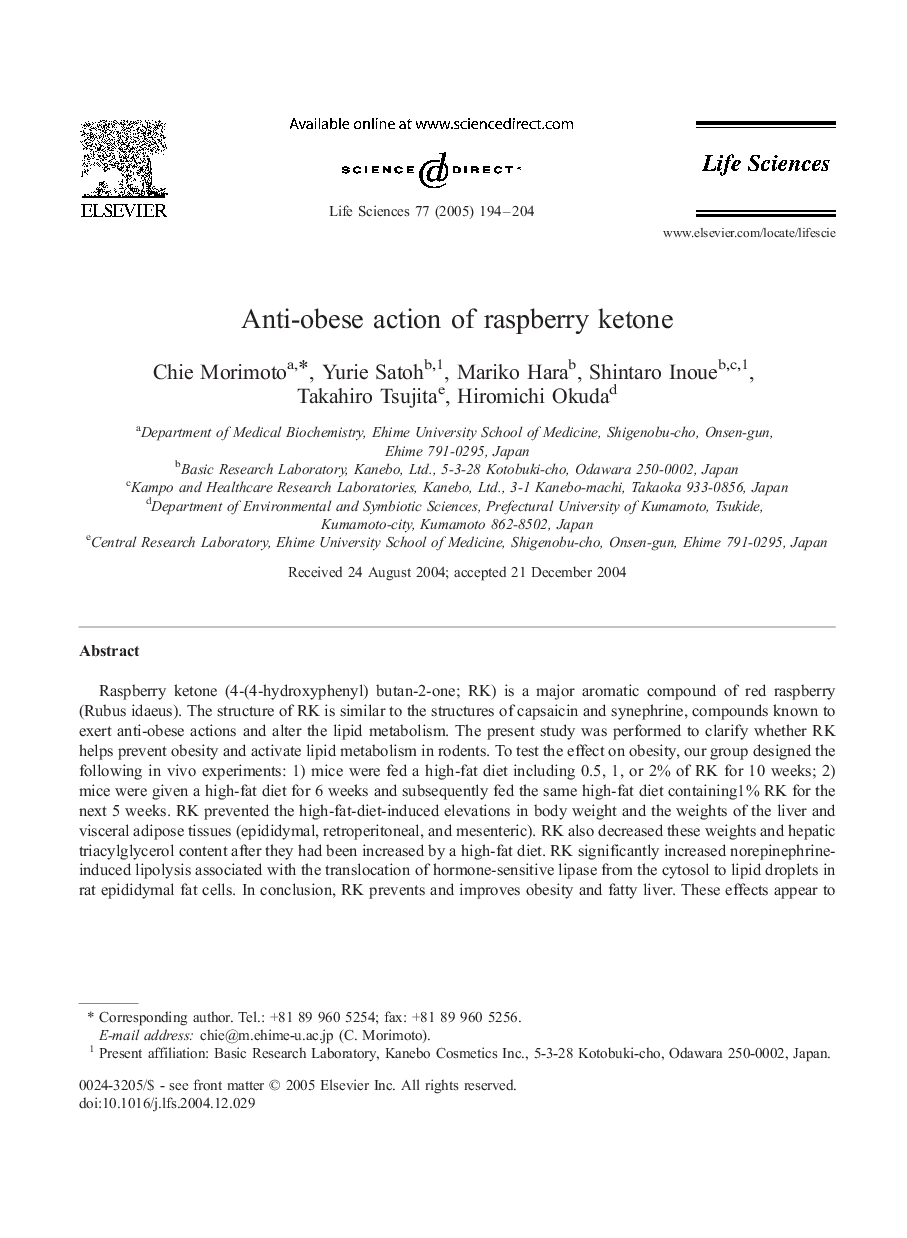| Article ID | Journal | Published Year | Pages | File Type |
|---|---|---|---|---|
| 9012874 | Life Sciences | 2005 | 11 Pages |
Abstract
Raspberry ketone (4-(4-hydroxyphenyl) butan-2-one; RK) is a major aromatic compound of red raspberry (Rubus idaeus). The structure of RK is similar to the structures of capsaicin and synephrine, compounds known to exert anti-obese actions and alter the lipid metabolism. The present study was performed to clarify whether RK helps prevent obesity and activate lipid metabolism in rodents. To test the effect on obesity, our group designed the following in vivo experiments: 1) mice were fed a high-fat diet including 0.5, 1, or 2% of RK for 10 weeks; 2) mice were given a high-fat diet for 6 weeks and subsequently fed the same high-fat diet containing1% RK for the next 5 weeks. RK prevented the high-fat-diet-induced elevations in body weight and the weights of the liver and visceral adipose tissues (epididymal, retroperitoneal, and mesenteric). RK also decreased these weights and hepatic triacylglycerol content after they had been increased by a high-fat diet. RK significantly increased norepinephrine-induced lipolysis associated with the translocation of hormone-sensitive lipase from the cytosol to lipid droplets in rat epididymal fat cells. In conclusion, RK prevents and improves obesity and fatty liver. These effects appear to stem from the action of RK in altering the lipid metabolism, or more specifically, in increasing norepinephrine-induced lipolysis in white adipocytes.
Related Topics
Health Sciences
Medicine and Dentistry
Cardiology and Cardiovascular Medicine
Authors
Chie Morimoto, Yurie Satoh, Mariko Hara, Shintaro Inoue, Takahiro Tsujita, Hiromichi Okuda,
